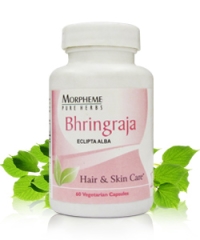Sage is an herb that can be found on most spice racks in kitchens throughout the world. Sage can be used in many different ways as a hair loss treatment. It can help promote hair growth, and it’s a good source of vitamins B and C, zinc, potassium and magnesium, all of which are good for your hair, scalp and follicles. Sage also has antiseptic and deodorizing qualities. You can purchase dried or ground sage from the grocery or local health food store, where it’s also sold in essential oil form.
Sage is an easy plant to grow, and can be found at your nursery or garden center in the herb section, or grown from seeds. Put the plant near a sunny window, and keep it moist with water but not soaking wet. Leaves can be harvested as needed, but do not take more than about a quarter of the plant. After you harvest the leaves, you can then either use them fresh, or let them dry out on the countertop for about a day or two. Then you can crush them by rubbing them between the palms of your hands.
Since sage has so many uses it is a good plant to have around and there are many uses for it as a hair loss treatment. You can make a tea rinse for your hair from fresh or dried sage, by pouring boiling water over it, then steeping it for about fifteen minutes for a nice strong mixture. Poor the tea mixture through a mesh strainer to remove the leaves, then store the tea rinse in a clean bottle and let it cool. Shampoo your hair as normal, rinse, and apply your tea rinse as the final step.
Recommended Products
Another hair loss treatment that can be made from sage is to mix several drops essential oil of sage with a small amount of jojoba oil, and gently massage it onto your hair and scalp. This can be done daily, try applying before bed time and then wash hair normally in the morning shower. You can also make a nice cup of tea from your dried sage, and sip on it right before bed time.
Caution: Please use Home Remedies after Proper Research and Guidance. You accept that you are following any advice at your own risk and will properly research or consult healthcare professional.





